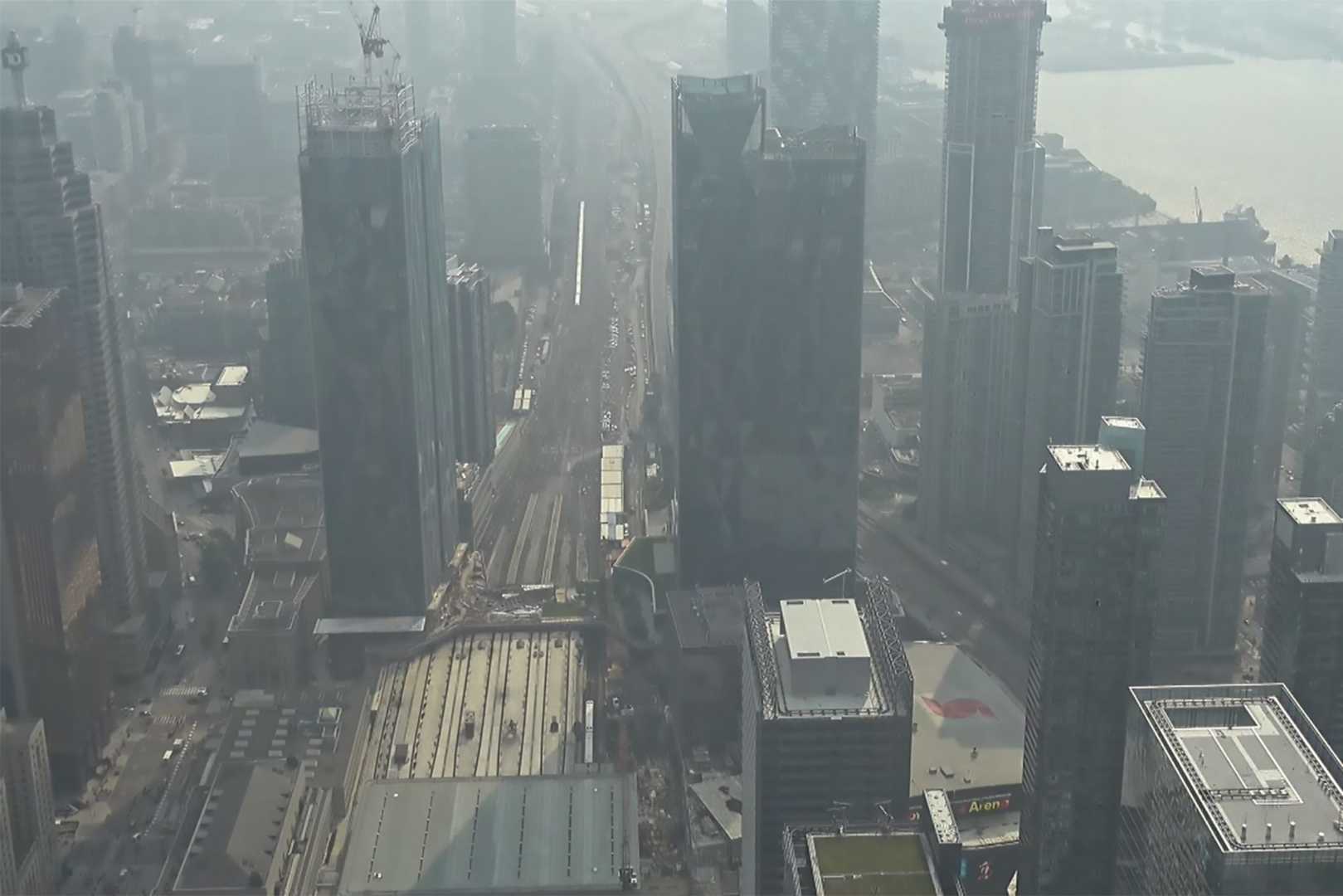News
Toronto’s Air Quality Plummets Amid Wildfire Smoke

Toronto, Ontario – Toronto ranked as the fourth most polluted major city in the world on Friday night due to smoke from wildfires in Canada, according to global air quality tracker IQAir.
The air quality in the city reached a level of seven on Environment Canada’s air quality health index, indicating a high risk. The index categorizes values between four to six as moderate risk and seven to ten as high risk, meaning residents should take precautions.
Wildfire smoke has been blowing into the Greater Toronto Area (GTA) from provinces like Manitoba, Saskatchewan, and Alberta, causing significant air quality issues. Environment Canada issued a special air quality statement for several areas, including Toronto, Mississauga, Brampton, and Vaughan.
“People are advised to limit their time outdoors and reschedule activities if possible,” Environment Canada stated. For those who must be outside, they suggested wearing well-fitting respirator masks, like N95s, to help reduce exposure to the harmful particles in the smoke.
Symptoms of smoke exposure can include mild issues like eye irritation and headaches, as well as more severe conditions like wheezing and chest pains. Residents experiencing serious health problems were urged to seek immediate medical assistance.
The hazardous air quality is particularly concerning for vulnerable groups, including seniors, pregnant women, and young children, as well as individuals with pre-existing health conditions. “Check on neighbors or friends who may be more susceptible to the effects of poor air quality,” advised Environment Canada.
Toronto Pearson International Airport reported no anticipated disruptions to operations due to the smoke. However, schools in the Toronto District School Board are closely monitoring the air quality and may move outdoor activities indoors if conditions worsen.
As the situation unfolds, air quality is expected to remain poor into the evening, but may improve slightly over the weekend, depending on shifts in weather patterns. Continuous updates will be provided by Environment Canada.












